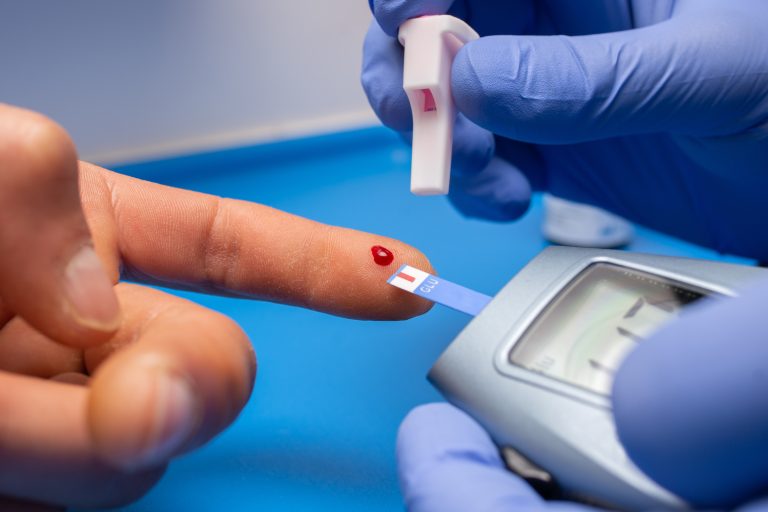Diabetes – a word with a lot of negativities associated with, where people might be even fed up with hearing. However, let me tell you 3 stories on diabetes that have positive endings. Let us see what we can learn and take from those experiences.
The first patient I would like to talk about is a 28-year-old male who has just found out that he has diabetes. It is widely known that if you have diabetes, or “Sugar” as some refer to, you will have to deal with it your entire life while undergoing many treatments. This patient, frankly, wanted to get rid of diabetes completely or, rather, not have to take medicine for diabetes the rest of his life. Reaching a point where you do not need to drink medicine for diabetes is what we call “remission of diabetes”. He wanted to live without having to drink medicine for years, so we came up with a plan for that. Research shows that there are ways and methods to get rid of diabetes, even though they are not suitable for everyone, but some can benefit from remission. Especially people who are in the early stages of the disease have the potential to go for a diabetes remission plan.
First, we focused on weight loss; second, lifestyle changes such as exercise and food consumption; and lastly, we monitored how the blood sugar levels were responding. This is the plan we came up with, and we started working on it. For example, to reduce weight, he needed a change in his food, and I created a meal plan suitable for that based on what he liked. Everyone needs exercise, so we tried to incorporate a few exercises to his way of life, and he gradually got into the habit of exercising 1 hour a day through activities like walking, etc. To lose weight, we started using medicine for weight loss as well. In particular, Empagliflozin, an SGLT2 inhibitor, and Victoza injection a GLP receptor blocker were both used.
With all these, he was able to achieve remission of diabetes and gain the ability to live without having diabetes or having to drink medicine for it. We are aware that research shows that people who lost weight, especially during the early stages of diabetes, experience a decrease in their blood sugar levels. While he shows normal results in HbA1c tests, I believe that he will be able to live 10, 15, or 20 years in this state. He had diabetes before, but not anymore. If he is consistent with the new lifestyle and changes, he can remain in diabetes remission.
The second story I have is of a 45-year-old who has had diabetes for 10 years but is not showing any symptoms of it, and they are concerned about what will happen to their body if they continue in that fashion. I will walk you through the plan I made with them. We say that we cannot cure diabetes, and even though a few do, some will have to get accustomed to living with it. Usually, for someone who is 45 years old, we try to do what is needed for them to live up to 85 years without facing complications such as heart attack, stroke, kidney issues, eye complications such as retinal damage or retinopathy, neuropathy, or issues in blood flow to the legs that would affect recovery of wounds and lead to amputating a leg etc., and to live comfortably, which is what I discussed with them.
I told them to observe the novel vehicle maintenance technology in place. Technology before was based on doing repairs to the vehicle, not servicing it. So, when a vehicle breaks down mid-trip, it is taken to the garage. But now, we service and maintain the vehicle in such a way that it is prevented from breaking down altogether. That is the theory we use for diabetes. Every 3 months, we check and assess the risks status related to blood sugar levels, just like checking the filters in a vehicle. During these checks, we make sure to examine eyes, nerves in the leg, kidneys, cholesterol levels that could result in heart attacks, and other risk factors. I described to them a life where they could live up to 85 years while on medications and preventing such complications.
That is the positive side of this new technology. We have new methods for treating and preventing organ damage caused by diabetes. Many use this concept, even internationally, which is to not wait until the problem arises but prevent it completely. Not that I like to talk about politics, but there are some things you can learn from Sri Lankan politics! When you observe Sri Lanka, you will notice that we deal with problems as they arise, but we rarely work to prevent them! That is not what we do with diabetes. We should have an understanding of how we carry this forward without a problem for 40 years, how exactly we can do it, and how we can create the best plan to not face any complications during all those years to come.
The third story is of a patient who is suffering from problems in their kidney. This arises from living without controlling their diabetes, blood pressure, or cholesterol levels properly. People have the misconception that these kidney-related issues are due to medicine, when in fact they are a complication of diabetes. For many in similar conditions, we used to say that there was nothing to be done about it and that they would eventually have to undergo dialysis or a kidney transplant. However, with new technology, that is not what we do now. Just like Remission of diabetes discussed above, we have Diabetic Kidney Disease Remission. For this patient, I said yes, we have a way, and, in the beginning, we identified and reduced the basic risk factors. The new medications we have are not just to control blood sugar levels; they also have a positive effect on the kidneys. It is not uncommon for many to be concerned that the usual medicine we use for diabetes would cause damage to the kidneys, which is why we use medicine that is good for the kidneys too. Same with medicine for high blood pressure – prescribing medicine for that patient that has positive effects on the kidneys, they might have to take 7 or 8 medications, but it would ensure that their blood pressure, cholesterol and blood sugar levels are in check with minimal side effects on the kidneys.
Usually, over the years, it is known for the kidneys to weaken, but with new research, we have observed that these new types of medicine will improve kidney health. I tell my patients that even though they grow old, their kidneys just get younger! For patients to live a normal life, we can create remission of diabetic kidney disease and turn things for the better.
Through these three stories, what I want to say is that diabetes is not something you should be afraid of. The good news is that we can make a plan for people who have no control to gain control, for those who have diabetes to go to a diabetes remission scheme, for people who have had their organs damaged to live a normal and comfortable life, and even for a someone who will have to live a long life with it to go through that journey without difficulty.



